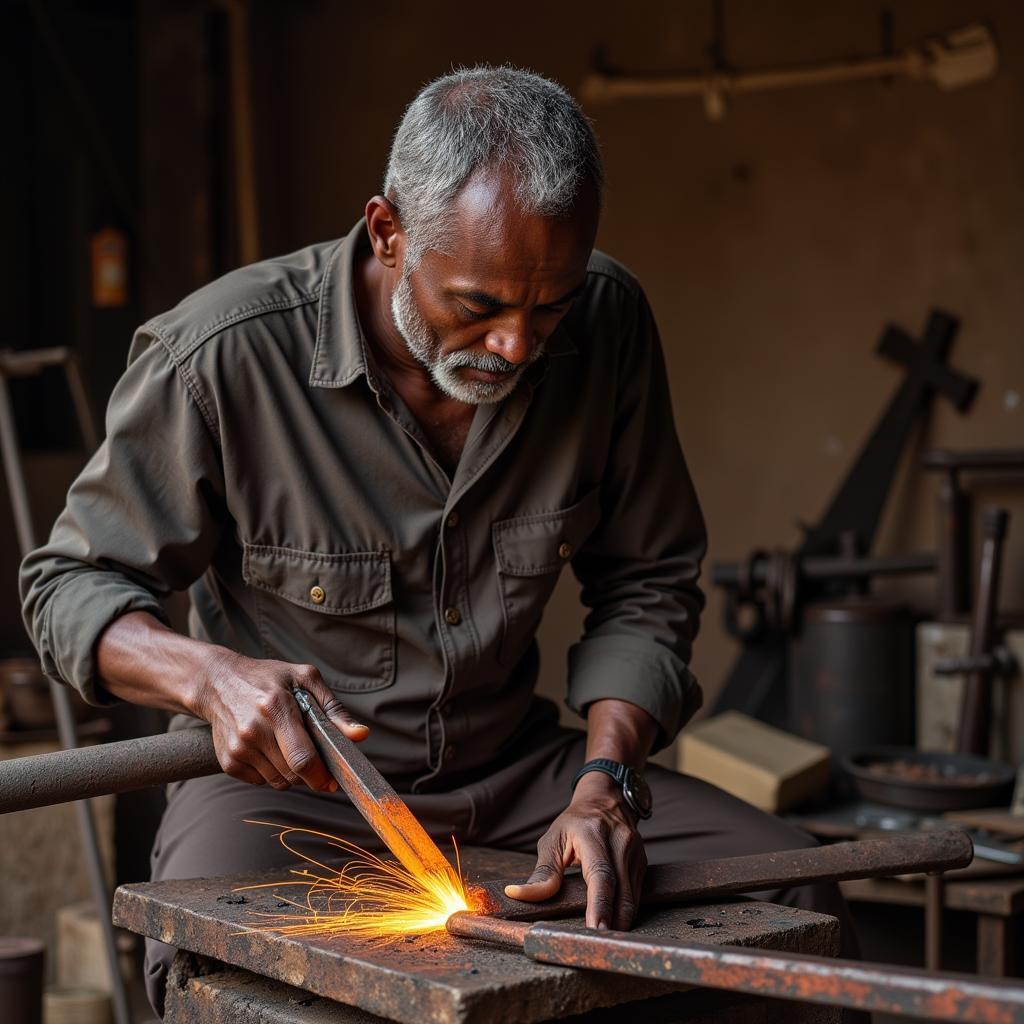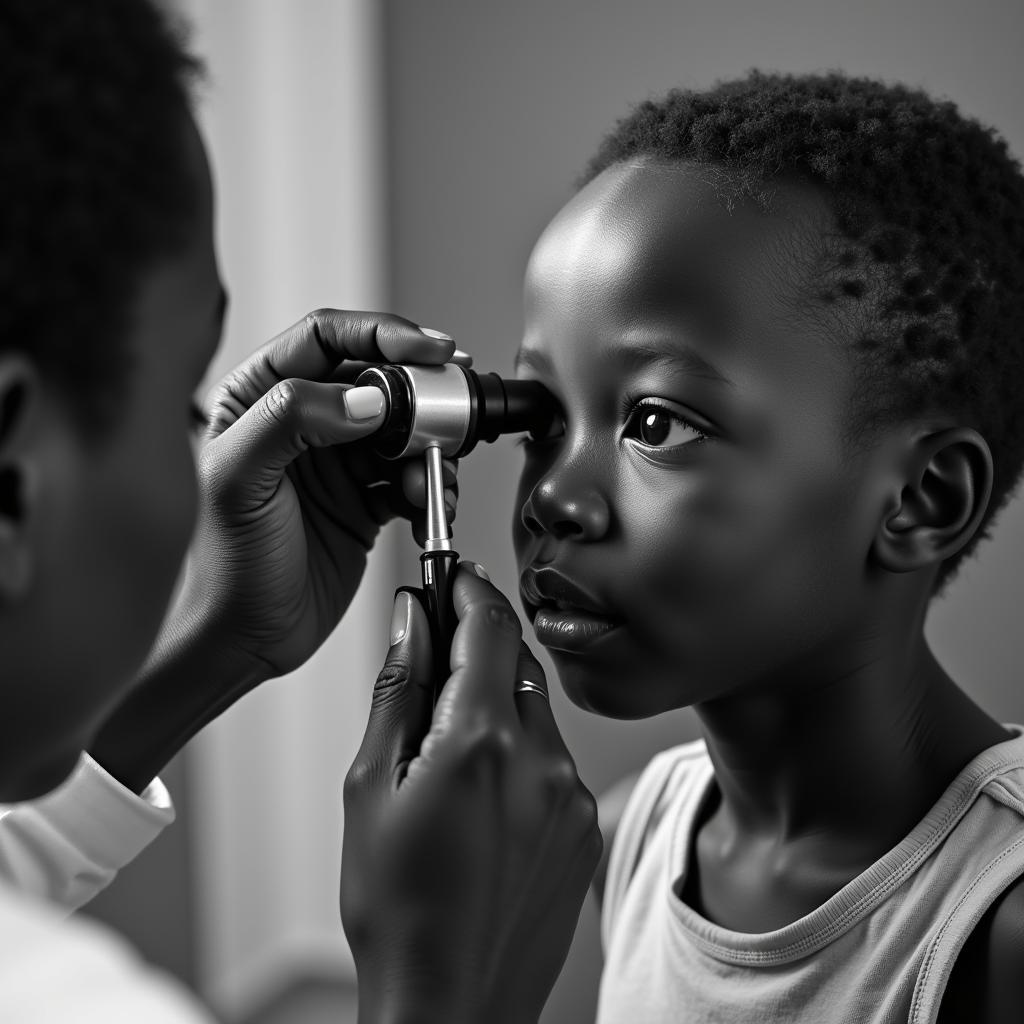African Dance and Black Magic: Exploring the Complex Relationship
African dance and black magic are two concepts often intertwined in popular culture, creating a mystique that both fascinates and misrepresents the rich tapestry of African traditions. This article delves into the complexities of this relationship, separating fact from fiction and exploring the true significance of dance in various African cultures. More specifically, we’ll look at how dance plays a role in rituals and ceremonies, and how these practices have been misinterpreted through a Western lens. We’ll also examine the origins of these misinterpretations and the impact they have on the perception of African cultures.
The Spiritual Significance of African Dance
Dance in Africa is far more than just entertainment; it is a powerful medium of expression deeply embedded in the spiritual and social fabric of many communities. From celebratory dances marking harvests and births to ritualistic dances invoking ancestors or deities, movement becomes a language connecting the physical and spiritual realms. In some cultures, dance serves as a form of prayer, a way to communicate with the divine and seek blessings or guidance. It is also a vital tool for storytelling, preserving history and passing down traditions through generations. The rhythmic movements, often accompanied by drums and chants, create a trance-like state, fostering a sense of unity and connection among participants.
After a joyous harvest in a small Tanzanian village, the community gathers for a vibrant celebration. The rhythmic drumming pulsates through the air as dancers, adorned in colorful attire, move with graceful precision, their bodies swaying like tall grass in the wind. This is not mere entertainment; it is a sacred ritual, an offering of gratitude to the spirits for a bountiful harvest. This connection between dance and spirituality is a recurring theme across the African continent.
Misinterpretations and the “Black Magic” Label
The Western world, with its limited understanding of African spiritual practices, has often misconstrued the profound significance of African dance. Ritualistic dances, particularly those involving trance states or communication with spirits, have been misinterpreted as “black magic,” perpetuating harmful stereotypes and fueling misconceptions about African cultures. This mislabeling often stems from a fear of the unknown, a tendency to categorize anything outside the familiar as “dark” or “evil.”
Unfortunately, the misrepresentation of African spirituality is not limited to historical accounts. Modern media continues to perpetuate these stereotypes, often portraying African rituals as sinister and malevolent. This not only distorts the true meaning of these practices but also contributes to prejudice and discrimination against people of African descent.
You may also be interested in learning about African curses, which are often misunderstood.
For more information on African traditions, you might enjoy these articles: 10 facts about South African culture and African American Steppers.
Reclaiming the Narrative: Understanding African Dance in its True Context
It’s crucial to move beyond these simplistic and harmful narratives and engage with African dance in its proper context. By recognizing the diversity of African cultures and the multifaceted role dance plays within them, we can begin to appreciate the depth and richness of these traditions. Understanding the specific cultural and historical background of each dance form is essential to dispel the “black magic” myth and appreciate the true artistic, spiritual, and social significance of African dance.
Dr. Abena Osei, a renowned anthropologist specializing in African dance, explains, “African dance is a complex language that speaks to the heart of a community. It’s about connection, heritage, and the celebration of life. Reducing it to ‘black magic’ is a gross oversimplification and a disservice to the rich cultural tapestry of the continent.”
The article on African black magic in London provides further insight into these misconceptions. If you’re interested in exploring other African cultures, learn more about the African country Seychelles.
Conclusion
African dance and black magic are two concepts wrongly associated due to misconceptions and cultural misunderstandings. By understanding the true spiritual and social significance of African dance, we can challenge these harmful stereotypes and appreciate the rich cultural heritage they represent. Let’s celebrate the diversity and artistry of African dance, recognizing it not as a source of fear but as a powerful expression of human connection and spirituality.
FAQ
- What is the role of dance in African society? Dance serves various purposes, including spiritual expression, storytelling, social bonding, and celebration.
- Why is African dance sometimes associated with black magic? This is due to Western misinterpretations of African spiritual practices and rituals.
- How can we combat these misconceptions? Education and cultural awareness are key to understanding and appreciating the true meaning of African dance.
- What are some examples of different African dance styles? There are countless styles, including Adowa (Ghana), Gumboot dance (South Africa), and Ndlamu (Zulu).
- Where can I learn more about African dance? Resources like cultural centers, museums, documentaries, and books can provide further insight.
Scenarios and Related Questions
-
Scenario: You see a documentary depicting an African ritual dance involving trance-like states.
-
Question: Is this an example of black magic, or is there a different explanation?
-
Scenario: You are researching traditional African healing practices.
-
Question: How does dance intersect with these practices, and how has this intersection been misinterpreted?
-
Scenario: You are planning to attend an African dance performance.
-
Question: What cultural context should I be aware of to appreciate the performance fully?
Further Exploration
For more information on African culture and spirituality, consider researching the following topics:
- The history and evolution of African dance forms.
- The role of music in African rituals and ceremonies.
- The diversity of spiritual beliefs across the African continent.
Need more assistance? Contact us 24/7: Phone: +255768904061, Email: kaka.mag@gmail.com, or visit our office in Mbarali DC Mawindi, Kangaga, Tanzania.

